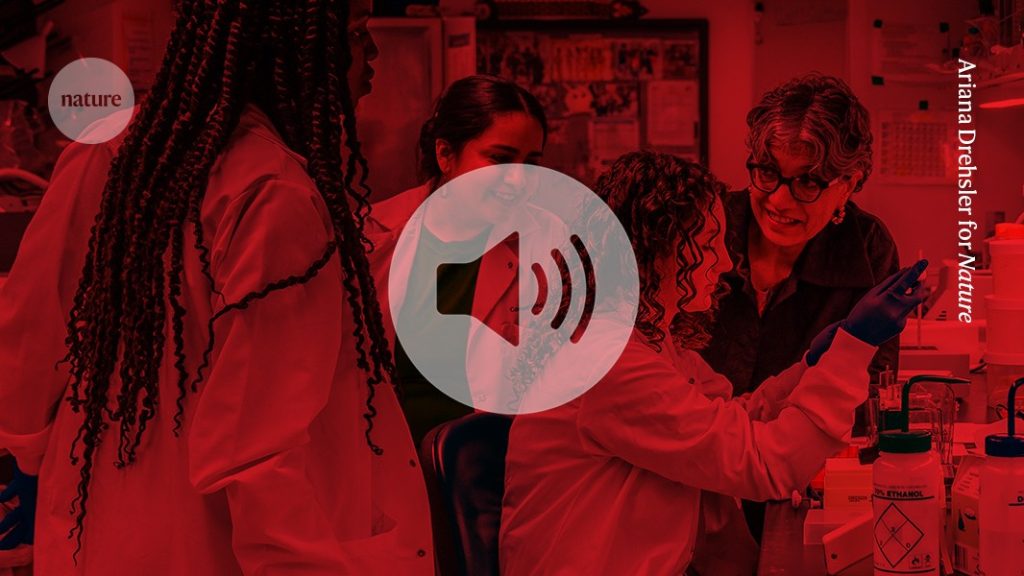
Deborah Daley 00:06
Hello, and welcome to Changemakers, a podcast brought to you by Nature.
I’m Deborah Daley, global chair of Springer Nature’s Black Employee Network, and I’m very proud to present this series, where we shine a light on fascinating and extraordinary scientists of colour.
We wanted to showcase researchers who have found new ways to make their practice of science more inclusive by giving greater consideration to, say, language barriers or marginalized groups.
The overall result: better science.
But first, let’s meet the architect of the series, which started as a collection of articles in the journal Nature.
Kendall Powell 00:51
I’m Kendall Powell, and I’m a senior editor for the Nature Careers section of Nature.
So Changemakers is a series of Q&A articles published in Nature with researchers from around the world who’ve made a real difference in terms of working for greater diversity, equity and inclusion in the scientific workforce.
The idea for Changemakers came out of a special issue that Nature published in the fall of 2022 on racism and science.
And after that issue, we discussed how Nature Careers could continue to shine a spotlight on racism and discrimination, and how they influence researchers’ working lives.
But we wanted to extend this coverage in a way that would be both candid and positive. So really looking for people making positive changes.
Two of the special issue guest editors, Chad Womack and Ambroise Wonkam, suggested that we highlight scientists of colour who are doing excellent work, both in their fields of research, but also in diversity, equity and inclusion work.
The focus of the podcast series showcases people who are working in areas of exclusion in science that really go beyond race.
So this is taking into account other aspects of marginalization or under-representation.
These might be things like women in science careers, Indigenous students and researchers. Or researchers for whom English is a second language. Or students who come from low income backgrounds, or those who are the first in their families to go to university.
The series explores how the inclusive practices that these researchers follow result in richer collaborations and ultimately better science.
So, for instance, we spoke with people such as Rana Dajani, a Palestinian molecular biologist who works in Jordan, and Babita Paudel, a biochemist from Nepal.
Both have brought career development and networking to women in parts of the world where female researchers often face steep cultural barriers to success.
We interviewed Amanda Black. She is a soil scientist who runs a New Zealand Centre of Research Excellence, where scientists conduct environmental research that’s guided by Indigenous values and is done in partnership with Maori communities.
We spoke with biologist Tatsuya Amano. He told us about the very strong biases in science that still exist for researchers who are not fluent English speakers. And he also talked about how colleagues can help to change that and in the long run, improve scientific outcomes.
So we chose people for this series in part because we knew they would speak boldly about some tough issues.
I really think it’s important that we keep talking about all of the ways that people can feel excluded from science in the pages and podcasts of Natureespecially if it makes those of us in the majority feel a bit uncomfortable and to sit up and take notice.
What really strikes me about each person that we interviewed is that they often turned the barriers and biases that they faced into a real driving force to make things more inclusive for the next generation of researchers, whether that’s in their fields, in their communities, or in their countries.
I truly hope that Nature‘s audience will take away many insights from what these Changemakers have to say.
Deborah Daley: 04:40
Thanks, Kendall, it’s a fantastic collection, and I encourage everyone to follow the links to the articles. But don’t go anywhere yet. Next up is episode one…








